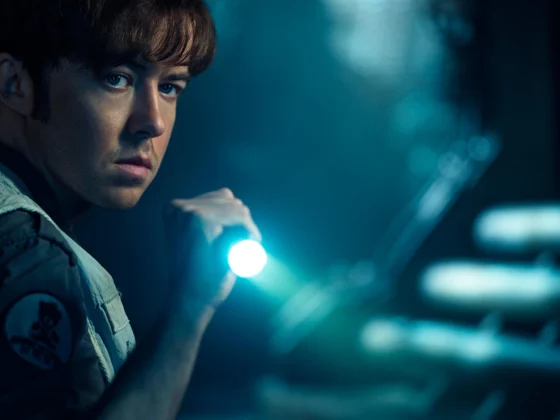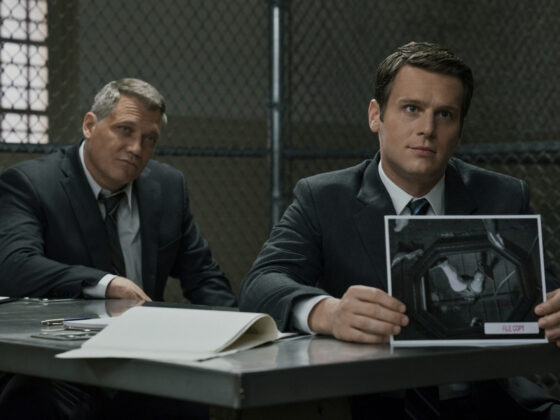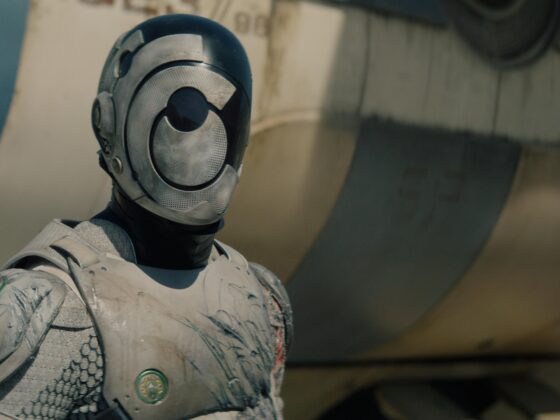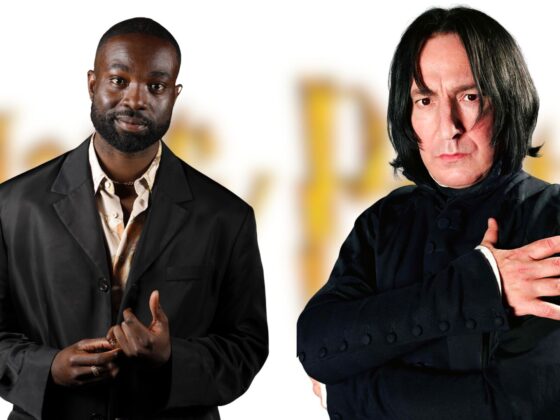If you’ve watched Rick and Morty, then you might remember the fourth episode of the sixth season titled “Night Family.” After Beth encounters Rick doing crunches at night on the living room floor, she later learns that he has a machine called a “Somnambulator.” I know this is supposed to be a review of Apple TV+’s Severance, but please bear with me. There’s a point at the end of this long rambling.
So, said machine allows him to program his unconscious body to do things while he sleeps that he doesn’t have time to do (or would rather not do) while awake. Obviously, the entire family wants in on this deal, especially after seeing Rick’s rock-hard abs. Rick gives in and programs his entire family to have their own night versions of their selves, and in no time, they turn into geniuses (except Jerry, ’cause he’s a loser… or is he?).
Well, Severance is basically “Night Family” with extra steps. The story begins with Mark, an employee of Lumon, a biotechnology corporation with too much parking space. Mark lost his wife in an accident, and his grief led him to opt for the severance procedure, a surgery that separates your memories and gives you multiple personality disorder.
One version of Mark (we’ll call him Lumon Mark, or his innie) exists only from 9 to 5 and has no idea what his other version looks like outside of the office. The same principle goes for the other version (his outie), who has an entire life outside the office but has no memories of work and the people he works with. If you hate your job and colleagues, this procedure sounds like a hoot, right?
The severance procedure seems to be working for Mark, since Lumon Mark doesn’t have to contend with the grief of losing his wife. As far as he is concerned, there is no wife to think about, let alone grieve for. All he knows is that he works in a small department called MacroData Refinement with three other colleagues, and he’s got the job satisfaction we all seem to strive for but never attain.
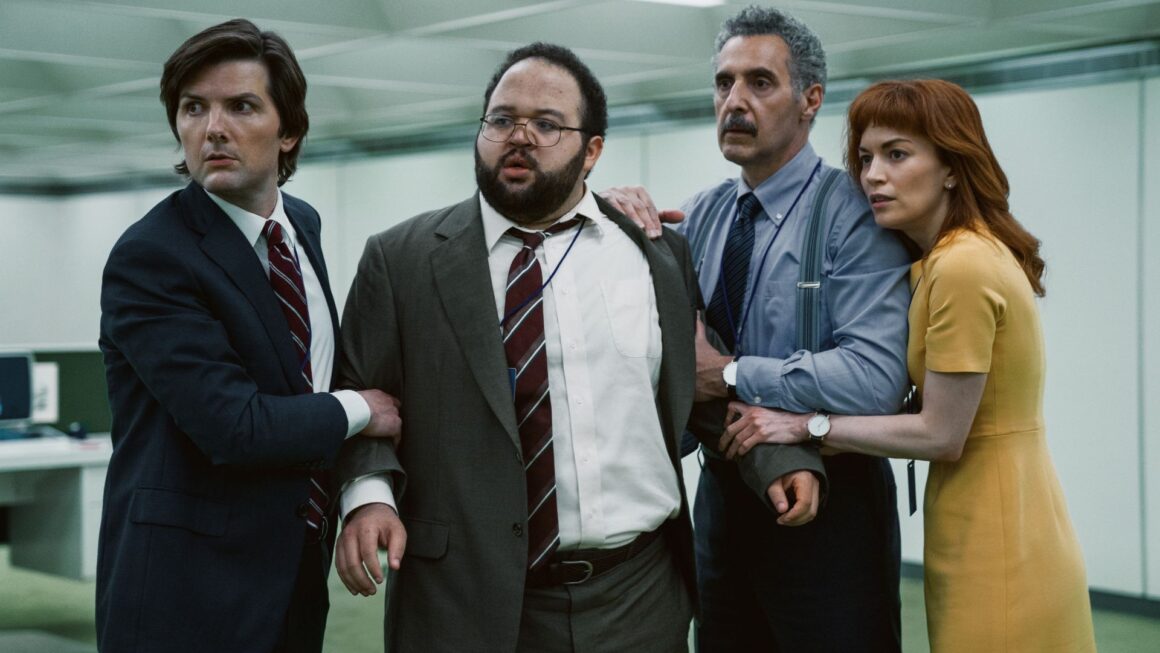
However, his life takes a dark turn when his outie is approached by a man named Petey who claims to be his best friend and colleague at Lumon. Petey reveals some disturbing secrets about Lumon that force Mark to question what kind of life his innie has at Lumon. This internal conflict forms the foundation of Severance, a show I took too long to start watching but thankfully eventually did.
I can’t go into more detail without ruining some key plots of the story, but I can skim across the surface. At its very core, Severance is a Kafkaesque story, a fact the writers remind you subtly every time you find yourself getting too comfortable. Despite all the sci-fi elements that form the basis of the story, Severance remains grounded and relatable, thanks to the performances of its highly talented cast.
Adam Scott, who plays Mark, convinces you to believe that you’re actually watching two different people. We don’t get to see enough screen time of his colleagues’ outies (though that’s by design), except for his boss, Harmony Cobel, who is portrayed by Patricia Arquette with ferocious intensity. John Turturro and Christopher Walken, not to be outdone, make a lasting impression with a subplot that starts off feeling unnecessary but ends up being incredibly important.
Severance asks a lot of big questions, such as who we are and whether our jobs define us. One of the best quotes from the show comes from a book passage that reads, “Our job is to taste free air. Your so-called boss may own the clock that taunts you from the wall, but, my friends, the hour is yours.” It sounds like a cliché self-help book quote (which it is), but as the show progresses, it turns out to be a call to action for both the characters in Severance and the audience as well.
Most sci-fi movies and shows that focus on human consciousness, like Total Recall, The Matrix, and Ex Machina, usually depict our characters’ brains being fiddled with against their consent. Severance, much like Eternal Sunshine of the Spotless Mind, takes a different route by giving its characters the free will to repress their own memories and confine them to a separate version of themselves. But then you have to ask yourself, who are you without your memories?
I’d be remiss if I didn’t heap tons of praise on Ben Stiller’s direction, the cinematography and the sound design. The deflating face effect that Mark and his colleagues experience every time they transition from their outie to their innie in the Lumon elevators is a perfect way to convey to the audience that you’re watching a different person, albeit in the same body.
Now that the release date for Season 2 has been revealed (along with a teaser), there has never been a better time to jump on Severance. I cannot emphasize enough how much I love this show. With all the mediocrity that Hollywood has been churning out, Severance is a breath of fresh air that needs more appreciation. To make it easier for you, this isn’t one of those shows that you need to watch several episodes to get hooked. Just try episode 1.
Verdict
Verdict-
Storytelling10/10 TranscendentEvaluation of the plot, character development, and narrative structure.
-
Cinematography10/10 TranscendentAssessment of camera work, lighting, and visual aesthetics.
-
Acting10/10 TranscendentEvaluation of the performances and character portrayals.
-
Soundtrack10/10 TranscendentEvaluation of the show's music, sound design, and use of audio elements.
-
Emotional Impact10/10 TranscendentThe show's ability to evoke genuine emotions and leave a lasting impression.
-
Technical Execution10/10 TranscendentEvaluation of the show's technical aspects, such as editing, special effects, and production values.
-
Originality10/10 TranscendentThe show's level of innovation, uniqueness, and freshness.



